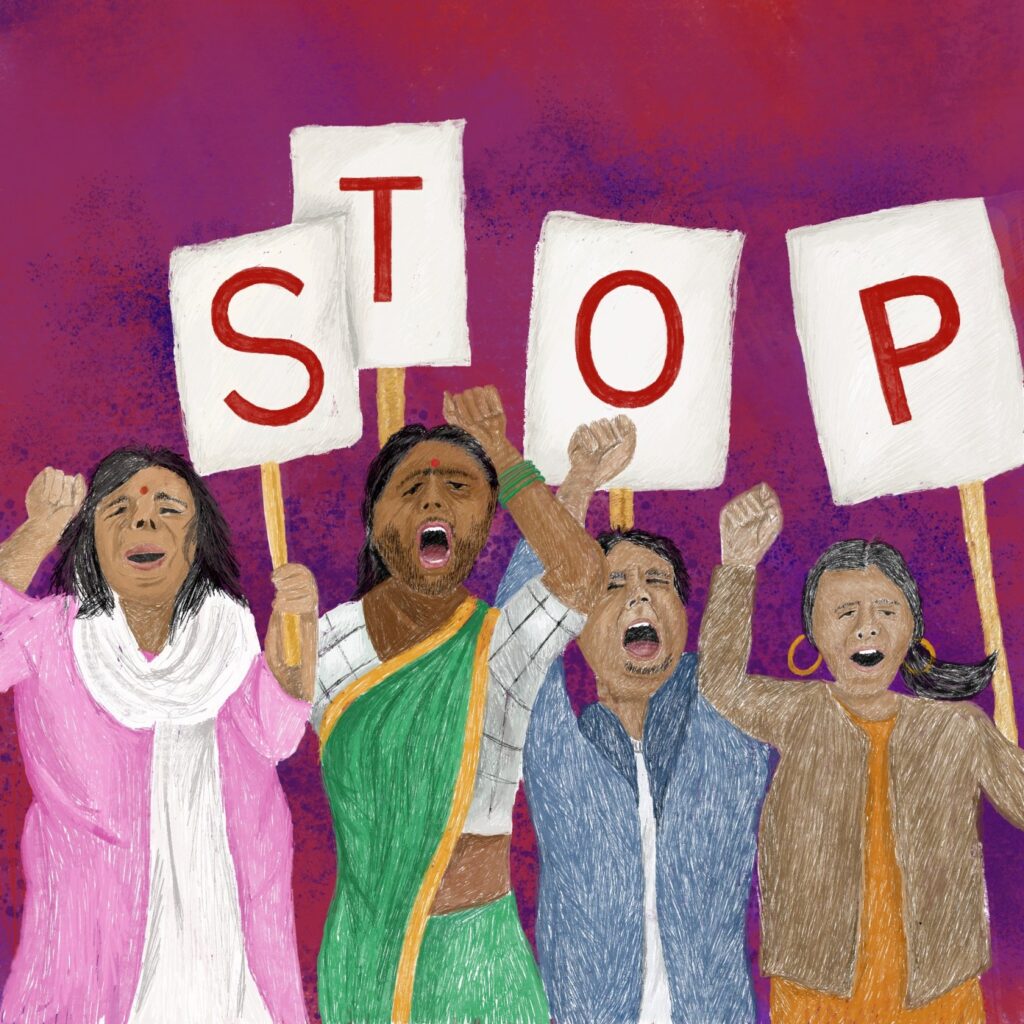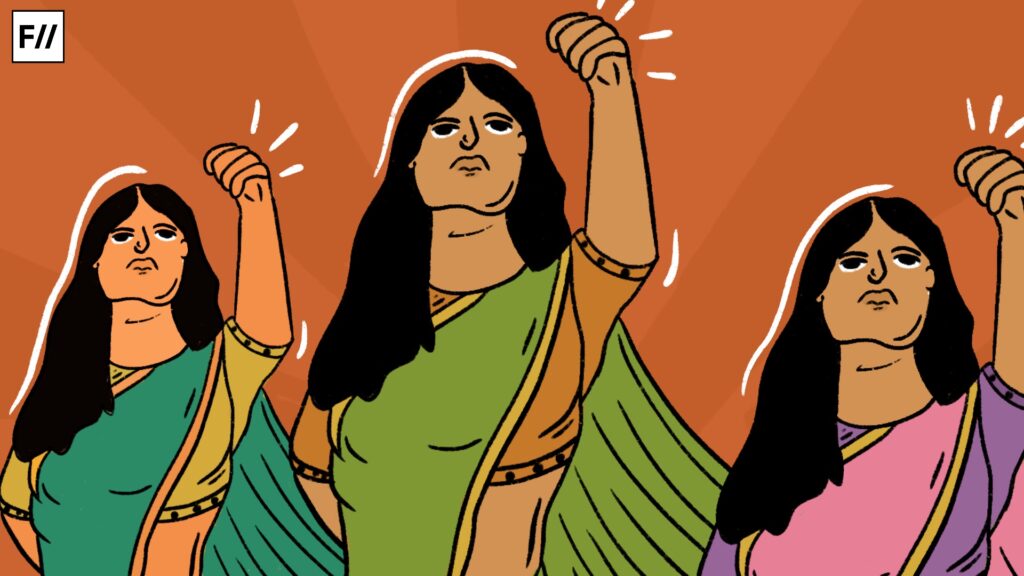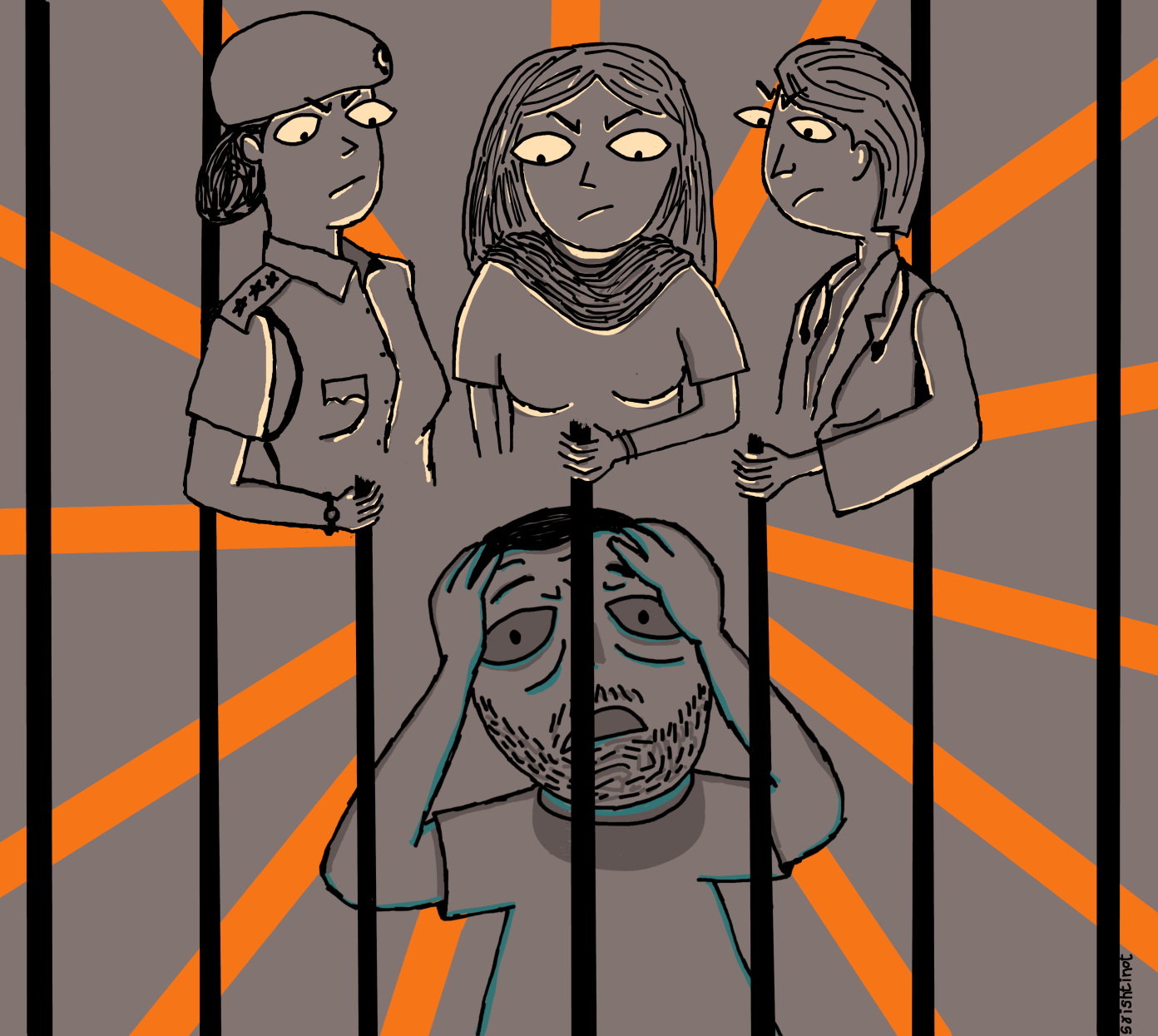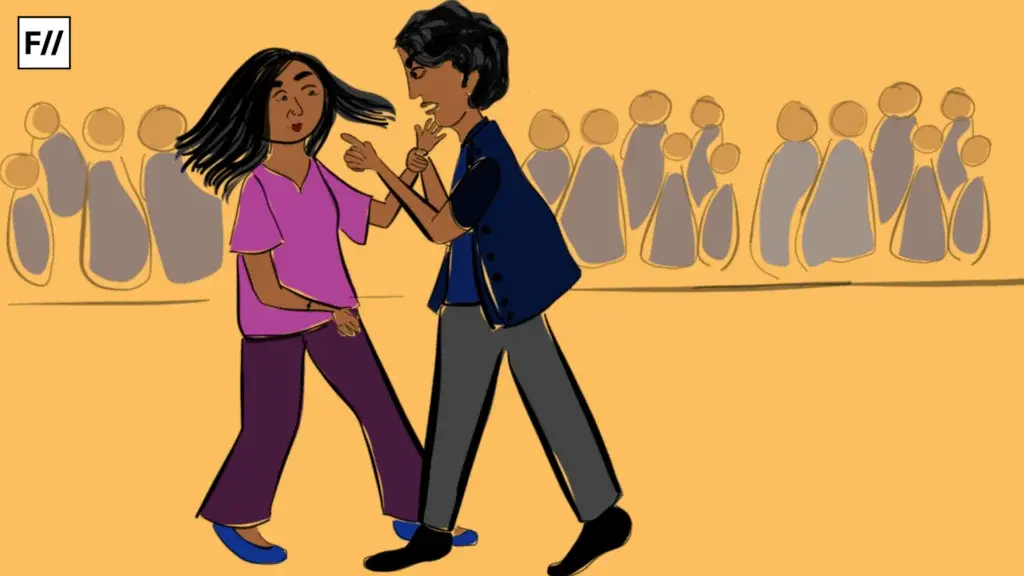Trigger Warning: Mention of rape and sexual violence
A horrifying incident unfolded in Rajasthan’s Sri Ganganagar district recently, when two women of the same family took their lives after a gruesome act of gang rape and blackmail. After weeks of harassing a woman, three men gang-raped her and videographed their inhuman deeds. Threatening to make it viral, they forced the woman to get her sister-in-law involved and brutally exploited her too.
Unable to bear this pain, she gave up her life by setting herself on fire but the sinners continued harassing the sister-in-law. When she approached the police with her family, she was met with a torturous round of questioning, only followed by a loose investigation. Left with no hope, she slit her wrist and succumbed to the injury.
Sexual violence is a cold-blooded crime, posing a major challenge to most societies worldwide. As per the figures from National Crime Records Bureau, 5 women become victims of rape every hour. Post-traumatic healing becomes very difficult for those who survive these brutal crimes. They have to face psychological, emotional, and physical challenges. Their suffering is often made even more difficult by the same institution meant to protect them and pursue justice – the police.
An investigation conducted by Tehelka magazine in 2012 exposed the way many police officers in New Delhi showed unsympathetic and hostile attitudes towards rape survivors. The investigation revealed these officers blamed factors like women’s clothing styles, having boyfriends, frequenting pubs, alcohol consumption, and working with men as the primary reasons behind instances of rape.
According to the report by the Commonwealth Human Rights Initiative (CHRI) and Association for Advocacy and Legal Initiatives (AALI), their case studies found no information available on any disciplinary action taken against police officers who failed to register First Information Reports (FIRs) for sexual offence cases, as required legally.
Increase in unreported cases due to secondary victimisation
The offences of rape and sexual assault have an infamously low reporting rate in India. Crimes go unreported largely due to a lack of faith in the police and investigative system. The patriarchal attitudes and biases ingrained throughout the police force, especially in how they handle rape cases, make it extremely difficult for survivors to feel comfortable coming forward to the authorities. It has been argued that reporting a rape to the police forces means the victim will have to go through relive and reconstruct the traumatic memory and to the same feelings of violence, fear and shame again.

The Ministry of Home Affairs issued an advisory to all states and union territories on the critical problem of police neglecting to file First Information Reports (FIRs) for sexual assaults against women. The advisory noted their failure to record information as required under Section 154(1) of the Criminal Procedure Code for such cases, which is punishable under Indian Penal Code Section 166A(c). It emphasised that registration of an FIR is mandatory in these cases, even if the incident occurred outside that police station’s jurisdiction. The advisory also instructed states/UTs to conduct refresher training courses for police personnel to increase their awareness of properly handling sexual offence cases.
The report concludes that delays by police in registering FIRs and initiating investigations, which often go unaccounted for during trials, not only negatively impact the integrity of evidence but also provide windows of opportunity for perpetrators to threaten, harass and even repeat the sexual violence against the victim. Such delays in collecting medical and forensic evidence weaken the prosecution’s case.
Trauma-informed care: A crucial need
Survivors of sexual violence are extremely vulnerable to secondary victimisation, where they are subjected to coercion, objectification and treatment that replicates the original traumatic assault. Negative treatment of survivors by authorities in the criminal justice system can lead to highly stressful interviews, poor victim statements that lack details, lack of follow-through on investigations, charges being dropped or never filed, an exacerbation of the survivor’s trauma, and ultimately a reduced number of rapes being reported.
Police forces oriented around trauma-informed care exhibit key characteristics like openness to change, willingness to collaborate across disciplines, provision of specialised training, involvement in research, concern for employee wellness, empathy toward victims, and overall egalitarian work culture.
While a trauma-informed, interdisciplinary approach is considered best practice for handling rape cases, some police agencies undervalue this methodology or lack a comprehensive strategy to implement it properly. Police forces oriented around trauma-informed care exhibit key characteristics like openness to change, willingness to collaborate across disciplines, provision of specialised training, involvement in research, concern for employee wellness, empathy toward victims, and overall egalitarian work culture. A top-down leadership approach is crucial for improving how police respond to and handle rape cases.

In the event of a sexual assault in India, laws state that a trained female police officer should be the one to record a statement from the victim, and police officials are required to register complaints. However, Human Rights Watch’s research shows that often exactly opposite things happen in India.
The report found that police often resist filing a First Information Report (FIR), which is the critical first step to initiate a police investigation into the crime. This resistance is especially prevalent if the victim comes from an economically or socially marginalised community. The report stated, “Police sometimes pressure the victim’s family to ‘settle’ or ‘compromise,’ especially if the perpetrator is from a powerful community.”
Human Rights Watch also found instances where police treated rape survivors brutally, even resorting to beatings and threats to force them to change or walk back their statements. In other cases, police simply chose not to pursue any investigation at all, essentially turning a blind eye to the crime reported to them.
Challenges faced by the police department
For a long period, police forces in India have been severely understaffed, even as crime rates have risen alongside population growth. Policing is a state subject in India, and state police forces have been reluctant to fill vacant positions, resulting in a shortage of 550,000 personnel across the states.
In 2016, the UN-suggested standard was 222 police officers per 100,000 people, while the required number for India was 181 per 100,000. However, the national average in India remains much lower at only 137 police per 100,000 people. More than 85 per cent of the police force is constables. Yet, they lack sufficient incentives for good service, with most only getting promoted once during their entire career before retiring without further advancement. Over the past decade, reported crimes per 100,000 population have increased by nearly 30 per cent. The reporting of rape cases saw a 132 per cent increase after new laws were passed in 2013.
Improving the infrastructure and addressing deficiencies is also frequently cited as a major issue by police forces, with reports of a 30 per cent shortage in police vehicles as of 2017.
At the constable level, the police force suffers from the triple shortcoming of an unattractive pay structure, poor prospects for promotion, and a risky range of duties they are expected to perform.
The characteristics and personality traits of individual police officers can significantly impact the process for victims reporting rapes. Officers are often selected through personality tests that prioritize suspicion, conformity, emotional restraint and deference to authority – traits that have been linked to adherence to rape myths. In combination with ingrained police culture and training priorities, these officer characteristics can limit their ability to build rapport with rape victims coming forward. The need for patience in allowing a survivor to express her emotions at their own pace may conflict with an officer’s desire to “get it over with” quickly.
When it comes to maintaining law and order, enforcing laws, and investigating crimes, police in India wield significant power and authority. However, to ensure this power is only used for legitimate purposes, there needs to be accountability measures in place.
The path to healing for rape victims is extremely difficult, but it should not be made even harder by the very institutions meant to seek justice on their behalf. By prioritising trauma-informed care, fostering accountability, and cultivating empathy and respect within law enforcement, we can begin to rebuild shattered trust and ensure victims receive the support and compassion they deserve.
About the author(s)
Rahul is a PhD candidate at the Department of Humanities and Social Sciences, MNIT Jaipur. His research focuses on democratic decentralization, local governance, and political-administrative dichotomies. He is also interested in contemporary Indian socio-political thought and alternate histories, particularly those highlighting social and spatial marginality. Rahul holds a master's degree from the Faculty of Social Sciences at South Asian University. He has a deep passion for Hindi literature and enjoys discussing it at length.





